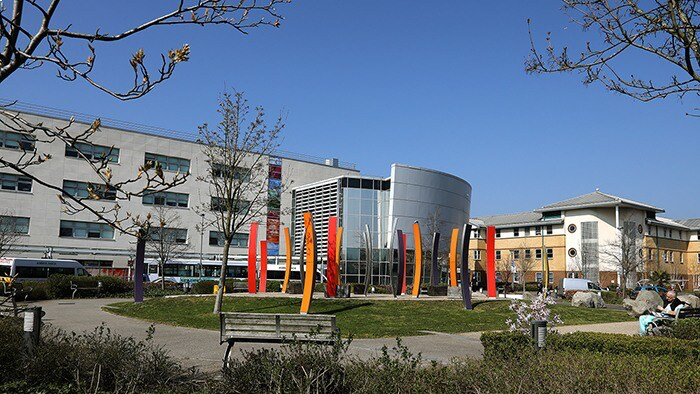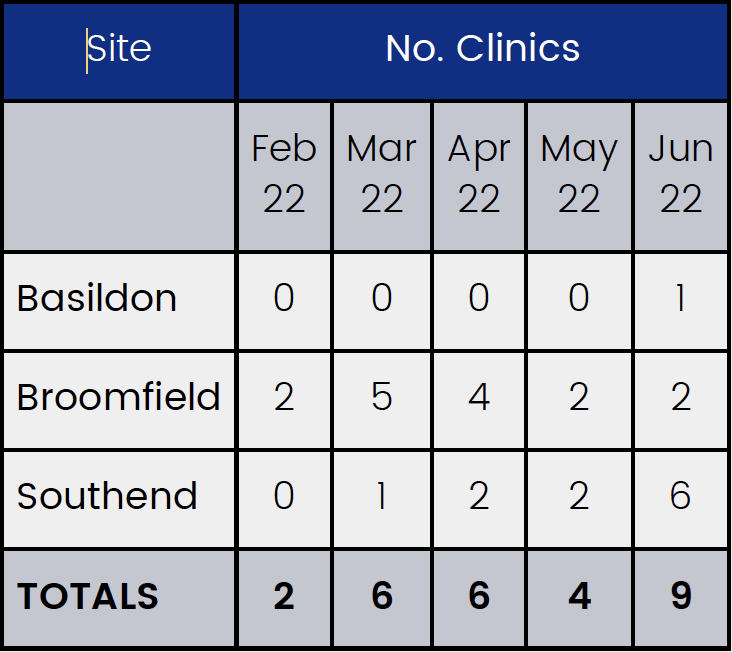HBSUK is now a subsidiary of AXA Health. Find out more here.
Clinics Total
Patients
Mid and South Essex NHS Foundation Trust (MSE) were facing challenges, post Covid-19, in recovering their waiting lists. They had identified Two Week Wait Breast Clinics (2WW) as a challenge, with a growing waiting list of GP referrals and the 2 week waiting time target not being met. Recovering the service, to ensure patients were seen within 2 weeks was proving challenging, with staff shortages due to Covid-19 isolation and restricted time to increase capacity.
MSE approached HBSUK to identify an innovative capacity solution, to reduce patient waiting times. MSE had explored insourced solutions previously, but they had limited success and were cautious to ensure better outcomes.
"I have worked with the Team at HBSUK since February 2022 and I'm happy that we have had full support from day 1 and has been a pleasure working with a well-oiled machine as HBSUK is."
Natalie L Knowles, Service Unit Manager Surgery Division, Breast – MSE

MSE identified a backlog of patients waiting to be seen at the Broomfield site, this being the most pressing cohort. Smaller numbers of patients were waiting to be seen at Southend and very few were waiting at Basildon. To manage the project and maximise the impact, Broomfield was identified as the initial clinic location, with a plan to expand to Southend and Basildon, if the Broomfield clinics were successful.
The Operational leads from MSE and HBSUK liaised to ensure staffing, location and most importantly, patient safety, were considered. HBSUK then examined how the clinics might be staffed and, on discussion with MSE Operations, concluded that a ‘home team’ approach may be the preferred solution. This enabled local staff to be involved and also ensured all local governance processes were upheld.
The team at Broomfield previously had a poor experience with insourcing and had reservations about working with another provider. Therefore, the Clinical Lead allowed the HBSUK operational teams to contact members of the Broomfield team, to assist during the onboarding process. The team members were encouraged to ask questions regarding pay, tax, and indemnity. By asking these questions early in the process, this helped prevent rumor and misinformation.
The project went live 4 weeks after agreement, with a couple of challenges, however due to excellent communication and collaboration between MSE and HBSUK, these challenges were resolved.
During the early months of 2022, there were challenges with Covid-19 and a small number of clinics were cancelled due to positive Covid-19 tests within the teams. When this occurred HBSUK worked with the Trust to move patients to future clinics and ensure all teams were aware of the cancellation.
Clinics were set up on Saturdays at Broomfield, generally twice per month to allow for staff to take ‘down time’ on the other weekends. Where Bank Holidays were scheduled, the staff were consulted to ensure that timings were acceptable.
Broomfield ran an Over 40s Clinic alongside an Under 40s clinic with 25 patients in each. This enabled HBSUK to schedule external staff to shadow the local team, expanding the available workforce. This action enabled HBSUK to cover absences due to illness or holidays.
Throughout the project there were weekly meetings to address any issues and challenge any process that was causing concern. These meetings were an essential part of the project and allowed both teams to gain trust and work collaboratively, which contributed to the overall success of the project.
Due to the success at Broomfield, Southend was mobilised shortly after. The site followed a similar approach, but with slightly different workflows, due to the local facilities and the list types. Southend-based staff were briefed in the same way as Broomfield, and with some already working at Broomfield, this process was simplified and resulted in onboarding taking less time, partly due to lessons learned previously. Basildon were keen to reduce a small backlog and were similarly mobilised with 1 clinic per month to ensure that they maintained the 2WW timelines.

Waiting lists were positively impacted and all patients seen during this initiative were in addition to the hard work being completed during the Trust’s normal working hours.
